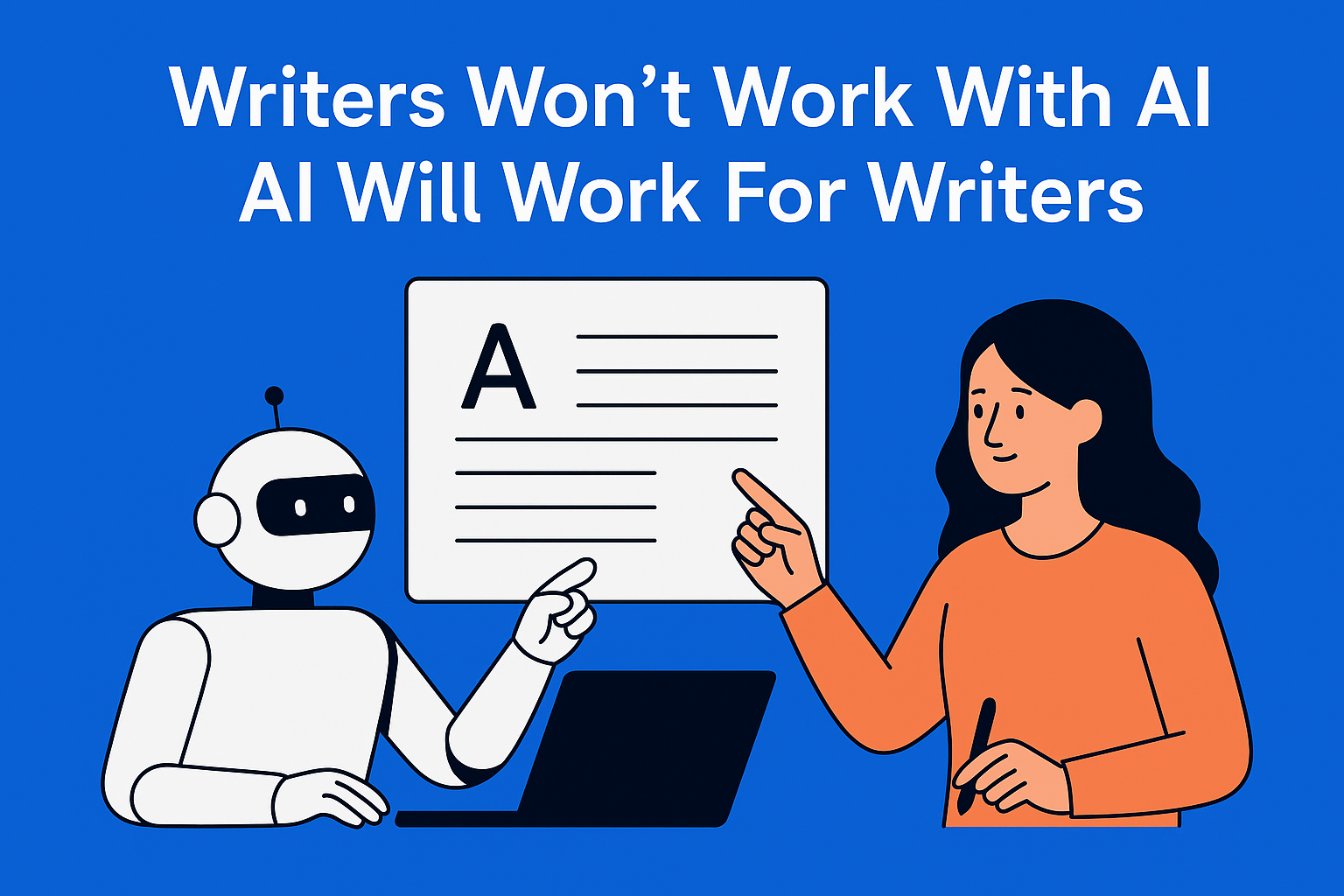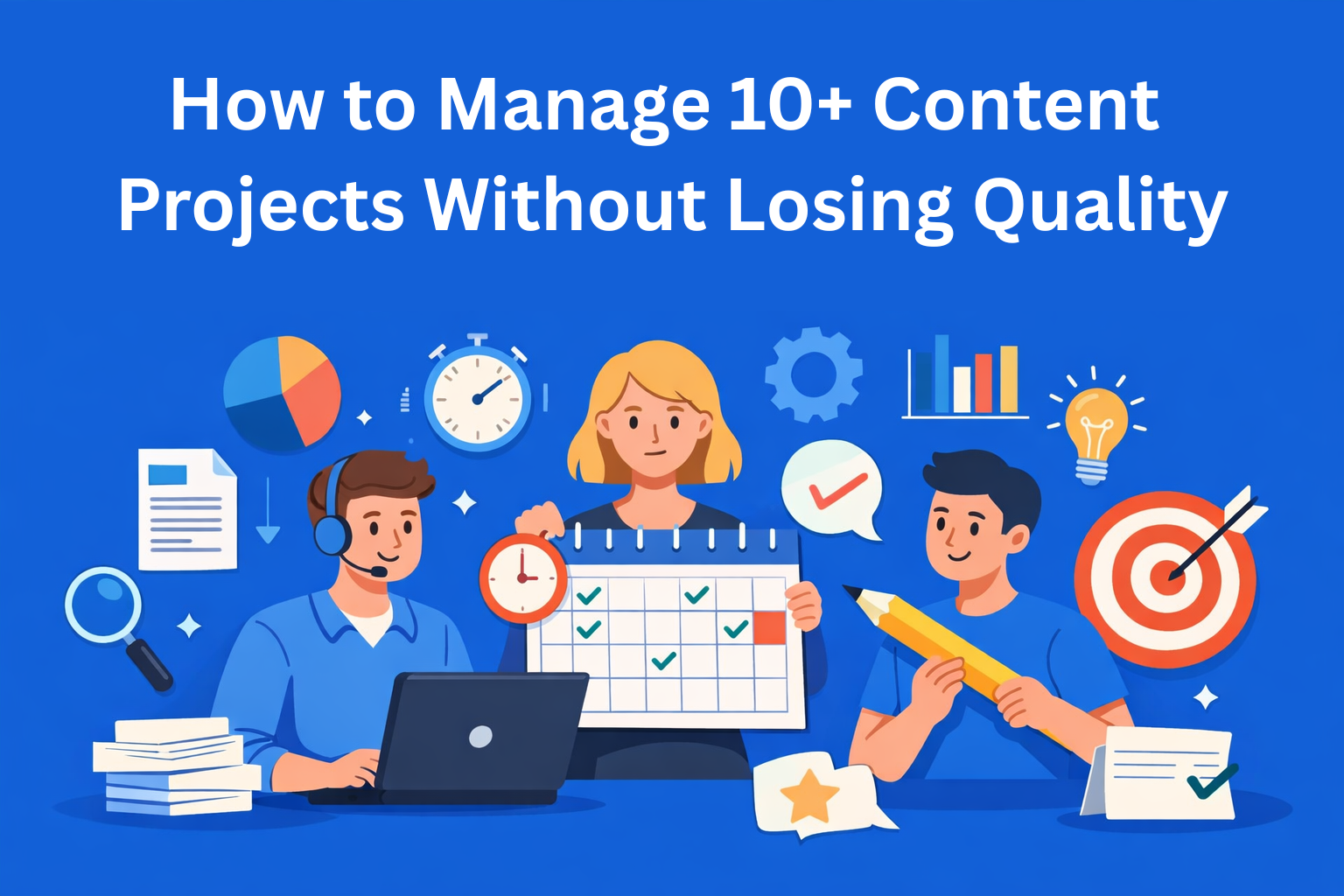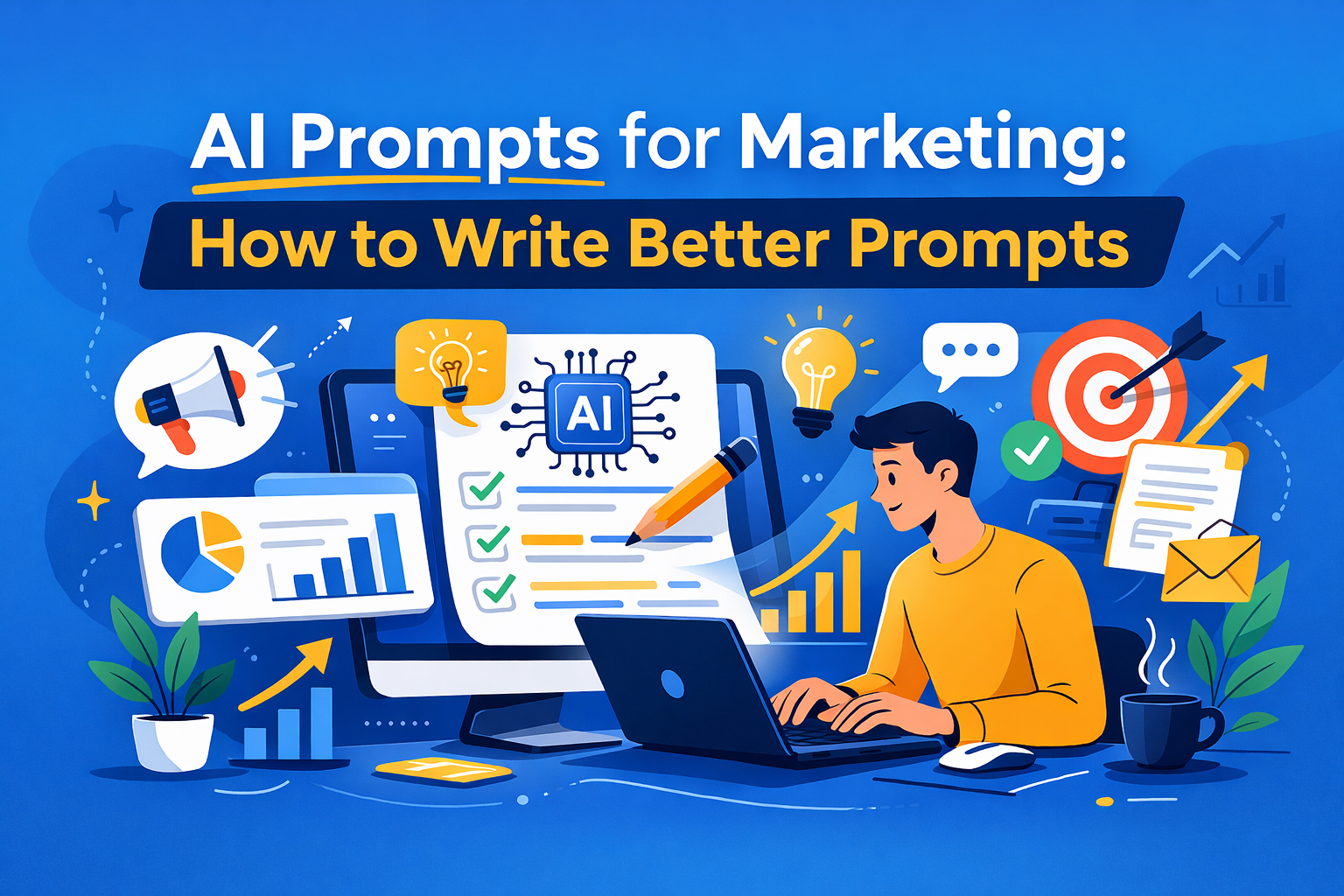Writers Won’t Work With AI - AI Will Work For Writers
AI won’t replace writers - it will work for them. It takes on the boring parts, while you stay the boss of the story, keeper of style and creativity.

We’ve said it a thousand times - probably more. AI is just a writing assistant. A helper. A fancy autocomplete. It’ll never replace a real writer. It just makes the job easier.
But what if that’s not entirely true?
Not the scary “robots are taking our jobs” version (we’re not going there). But what if AI stops being just a tool you use and starts becoming something more like... an apprentice?
A junior writer. One that works under you. For you. With no ego, no writer’s block, and infinite patience.
Sounds pretty cool, right?
We’re on the verge of a shift - a time when AI will no longer sit quietly next to the writer, suggesting a few phrases or outlining a structure. It’ll start taking on real work. Not just assisting. Producing. Executing.
And that’s not something writers should fear. It’s something they should get excited about.
Key Takeaways
- AI is evolving from a passive tool to an active writing apprentice - capable of producing full drafts based on well-crafted prompts.
- Writers’ roles shift from execution to oversight - focusing on strategy, tone, narrative, and emotional impact.
- The new workflow boosts speed and reduces burnout - allowing more creative energy for high-value tasks humans excel at.
- AI still can’t replicate true human creativity - emotion, wit, pacing, and nuance remain uniquely human strengths.
- Platforms like EasyContent keep AI-assisted workflows structured - with templates, prompt libraries, and review steps ensuring quality and brand consistency.
From Hammer to Apprentice: The Evolution of Writing Tools
Every writer has their favorite tools. Maybe it’s a fountain pen, a mechanical keyboard, a sticky-note-covered monitor, or a minimalist writing app with zero distractions.
AI started out as just another one of these tools. A hammer for your creative construction site.
You asked it to brainstorm blog ideas or rewrite a headline. It gave you options. You asked for an outline. It gave you something rough to build on. All assistant-level stuff - handy, but hardly groundbreaking.
But now? The hammer is getting a mind of its own.
With the right prompt, AI can write an entire blog post. Or an email sequence. Or a script. It’s not replacing your ideas - it’s just executing them faster than your typing speed.
Which means it’s not really a hammer anymore.
It’s an apprentice.
And like any good apprentice, it still needs guidance, but it can take on more of the actual workload.
How This Changes the Writer’s Role
This shift in how we use AI doesn’t mean writers are being pushed out of the picture. Quite the opposite.
It means your job evolves.
You stop spending hours wrestling with first drafts, obsessing over phrasing, or slogging through repetitive content formats. Instead, you become the one who:
- Defines the strategy
- Crafts the perfect prompt
- Shapes the narrative arc
- Edits for tone, voice, and emotion
- Injects the soul AI can’t replicate
You move up the ladder - from execution to oversight.
And yes, that might feel weird at first. Many of us like the messy, frustrating, beautiful process of writing. We enjoy the wrestle. But if we’re being honest? We also enjoy flow, freedom, and finishing projects without burning out.
This isn’t about losing control. It’s about gaining creative altitude.
What It Might Look Like in Practice
So what does this shift actually look like in a writer’s day-to-day?
Let’s break it down.
Before: The Writer as the One-Man Band
You brainstorm the topic, outline the post, write the intro, get stuck halfway, finally finish, edit it three times, send it to your editor, rewrite parts based on feedback, and still wonder if it’s any good.
After: The Writer as the Conductor
You start with a brief. Craft a detailed prompt. Let AI give you a few drafts. Pick the strongest. Reshape it. Infuse it with voice. Cut what doesn’t land. Add the emotion, nuance, and rhythm AI just can’t fake.
The result?
More output. Less burnout. Better part of your energy spent on the parts of writing that you actually like.
You’re not chained to the keyboard anymore. You’re calling the shots. And that’s a creative shift worth getting used to.
Why This Should Excite Writers, Not Scare Them
Let’s be clear: AI still can’t do what you do.
It can mimic tone. It can write with structure. It can follow instructions. But it can’t be clever. Or witty. Or deeply emotional. It doesn’t understand pacing, irony, or when a story needs to pause and breathe.
That’s all you.
But what it can do is give you a head start. Get the heavy lifting out of the way. Help you hit deadlines without sacrificing quality.
Think of it like having a co-writer who never needs coffee, never calls in sick, and never argues about the Oxford comma.
It means:
- Fewer blank pages
- Faster first drafts
- More energy for editing and polishing
- Less time stuck in the weeds
And most importantly? More room to do the kind of writing you love - the stuff only humans can do.
How Platforms Like EasyContent Help You Work With Your AI Apprentice
Even with AI stepping up as your writing sidekick, you still need structure. You still need a way to keep your voice consistent, manage reviews, and track who’s doing what.
That’s where platforms like EasyContent come in.
You can:
- Create templates that include brand tone, target audience, and structural guidelines
- Store prompt libraries for common content types
- Build checklists into each workflow stage to ensure quality
- Set up review steps so every AI-generated piece still passes through human hands
The goal isn’t to micromanage creativity - it’s to streamline your process so you can do more of what you’re best at. Whether content starts with a blank doc or a prompt, you’re still the one steering the ship.
Final Thoughts
If the idea of AI “working for writers” sounds strange, it’s only because we’ve spent the last two years positioning it as a background assistant.
But as the tech evolves, so will your role.
Not as someone who’s being replaced, but as someone whose value shifts from production to direction.
You’ll write fewer rough drafts. You’ll fight fewer formatting battles. You’ll spend more time doing the work that feels fun, challenging, and creatively fulfilling.
So no - writers won’t work with AI.
AI will work for writers.
And that’s not something to be afraid of.
That’s something to look forward to.






